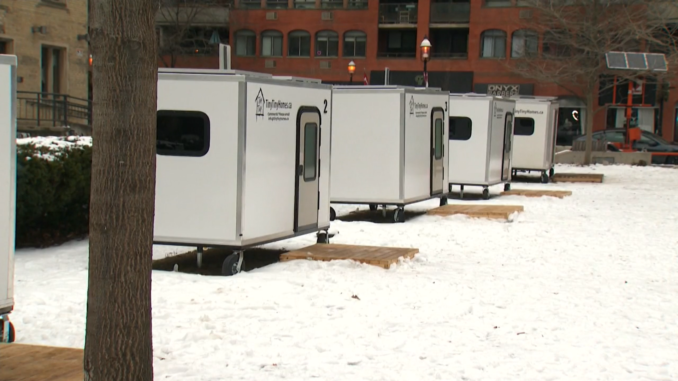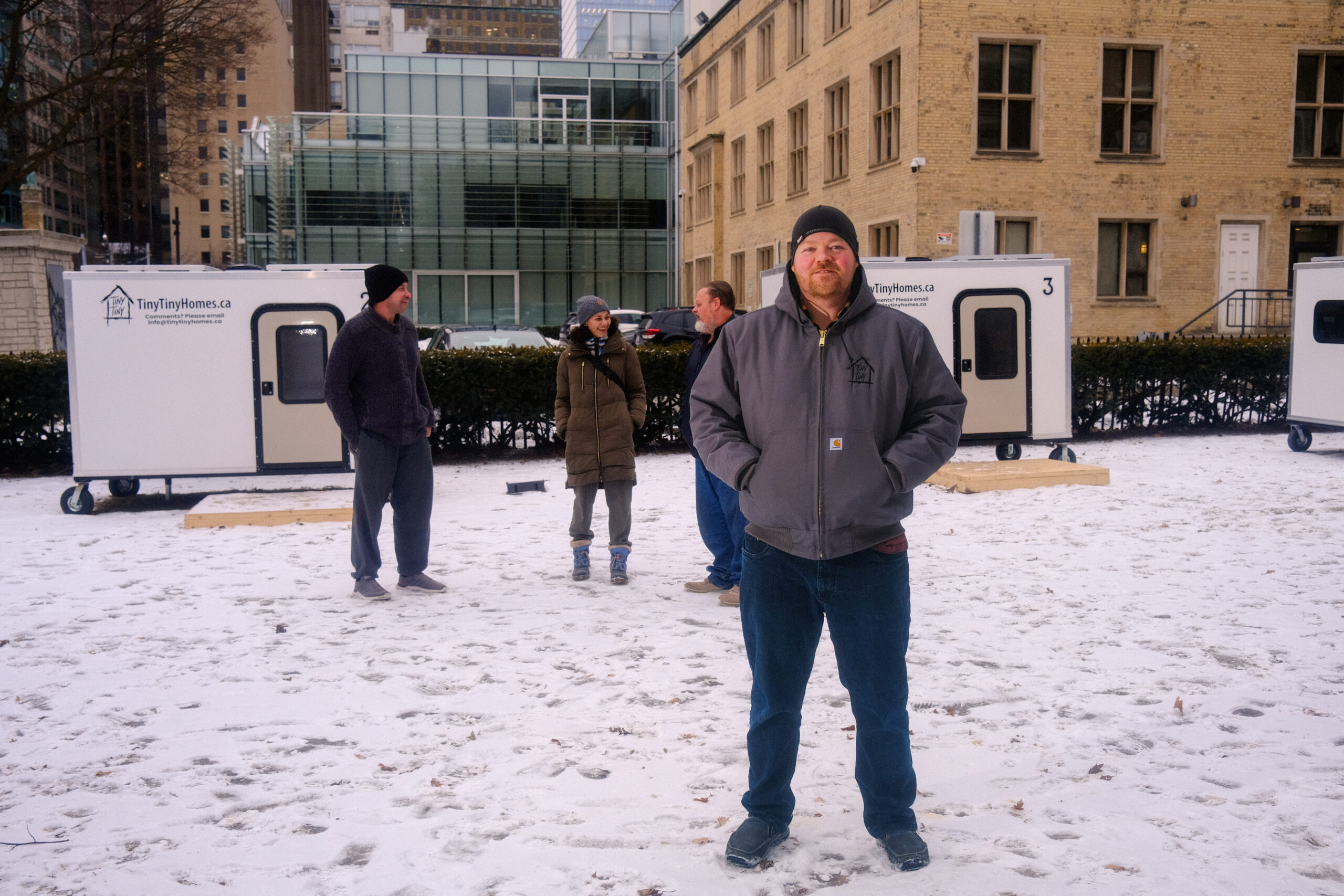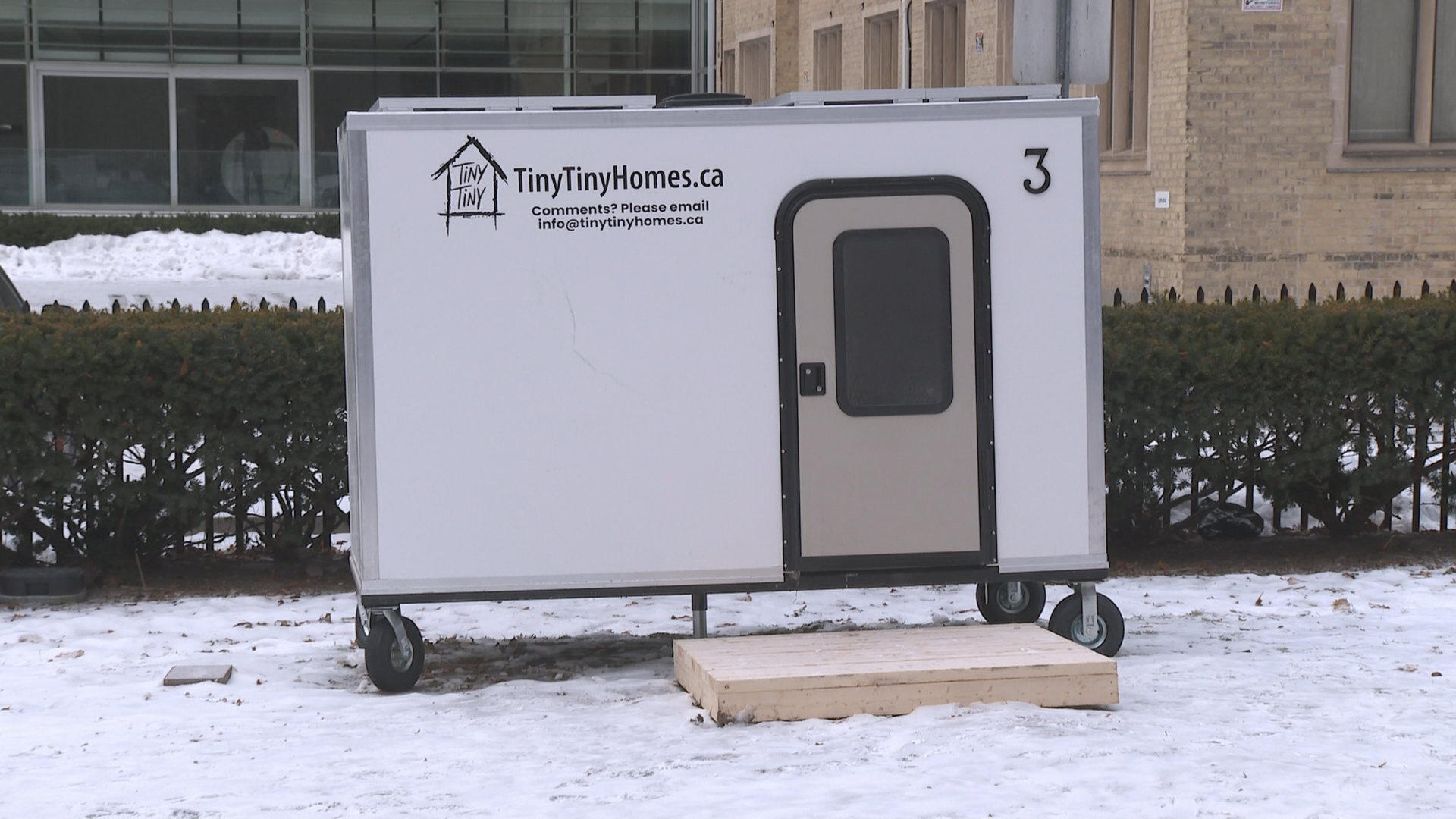
Tiny, Tiny Homes Plea for Help
by Zane Cherniak
As Toronto battles its worst winter storm, some of the city’s most vulnerable residents are finding refuge in small, mobile shelters. But just as these structures offer relief from the cold, the city is demanding their removal.

A Vision For Change
Ryan Donais was moved to act after witnessing the growing number of people living in unsafe encampments throughout the city. Instead of waiting for large-scale policy changes, he developed a grassroots solution: compact, mobile shelters that provide warmth, protection, and a sense of security. Each unit is lightweight and designed for mobility, giving individuals more control over their living situation while ensuring they aren’t left exposed to Toronto’s harsh weather conditions.
“I just couldn’t stand by and watch people freeze on the streets,” Donais says. “These shelters are not a permanent fix, but they give people a safe place to sleep and a little bit of dignity back.”
Inside a Tiny Home
Navigating City Regulations
However, the city has now ordered Tiny Tiny Homes to stop its operations. Last Friday, Donais received a cease and desist letter from city lawyers, stating that the shelters were “unlawfully occupying” city property and violated municipal code. The letter acknowledged his good intentions but insisted that the city “does not condone and cannot permit the installation of these structures for occupation on City property.”
The structures, many of which are in St. James Park, were cited as interfering with public access and posing health and safety concerns. Donais expressed frustration, especially since he had recently met with city officials and believed those discussions were positive. “It kind of hurt our hearts,” he said.
Despite the order, Mayor Olivia Chow has intervened, stating that she has reached out to Donais and that none of the structures will be removed “in the near future.” Donais and Tiny Tiny Homes have responded to the city in writing, arguing that the shelters are mobile and not permanently installed. They have also paused construction of new shelters while they seek a resolution.
For now, Donais remains committed to the cause and hopes the city will provide an approved space for his initiative. “We’re only here because of their failure of action. Give us a place to put them, and let’s get them out of the park,” he said.
Ryan Donais Plea for Help
The Cost of Compassion

One of the most pressing questions is how much it costs to build these shelters and where the funding comes from. Each Tiny Tiny Home costs approximately $2,500 to construct and takes about a week to build. Donais, who is not a contractor by trade but learned construction skills along the way, initially built them himself. However, as the project has grown, he has received help from volunteers and donations.
“We rely entirely on donations and volunteers,” Donais says. “Sometimes it’s tough to get everything we need, but the support from the community keeps us going. We’ve had people step up to help in ways I never imagined.”
The organization is entirely volunteer-run and depends on community support. So far, donations have helped keep the initiative going, but sustaining and expanding the project remains a challenge. “Every dollar makes a difference,” Donais emphasizes, noting that more funding could allow for more shelters to be built at a faster rate.
Stories from the Residents
For those who have received a Tiny Tiny Home, the impact is profound. “It’s the first time in years I’ve had a place to call my own,” says Terra Sawler, who had been living in a tent encampment before receiving one of Donais’ mobile shelters. ” Staying here gives me the essentials, but also a sense of security that I just didn’t have before.”
Donais has seen firsthand how something as seemingly small as a mobile shelter can make an enormous difference. “People tell me it gives them a sense of normalcy. That’s something everyone deserves.”
The Future of Tiny Tiny Homes
So far, Donais and his team have built over 50 shelters, but the demand is far greater than what they can currently provide. The question now is: what’s next? Can this initiative scale up? Will the city fully embrace it as part of the solution to homelessness?
For now, Donais remains committed to his mission, driven by the belief that no one should have to sleep in the elements. With continued support from the community, Tiny Tiny Homes may just be the start of something bigger—a movement aiming to prove that small solutions can lead to big change.

Be the first to comment